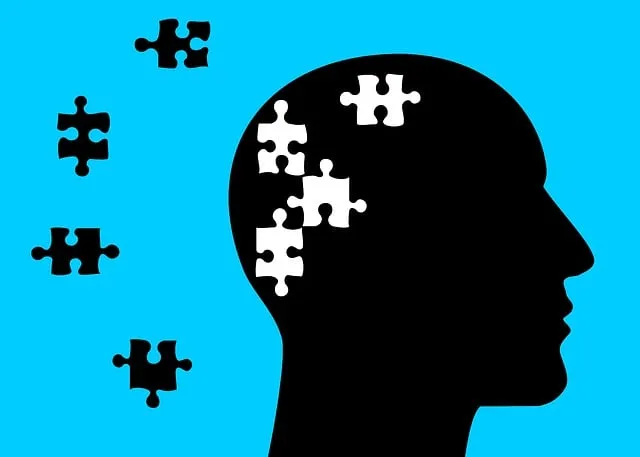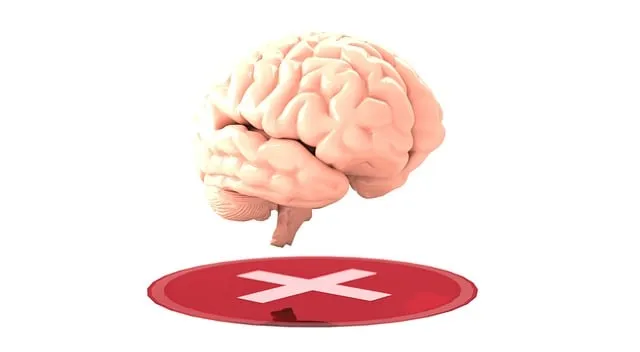Broomfield Kaiser Permanente is enhancing mental illness diagnosis accuracy through a multi-faceted approach that combines traditional and innovative methods. They prioritize comprehensive patient assessments, evidence-based practices like Mindfulness Meditation, and self-reflection exercises to improve communication and understanding of mental health conditions. Utilizing advanced algorithms and digital resources, the organization empowers patients with coping skills while leveraging cutting-edge technologies for accurate diagnoses. Training programs focus on cultural sensitivity and risk management, ensuring tailored care for diverse populations. Success is measured through KPIs like patient satisfaction, treatment adherence, and relapse rates, guiding continuous improvements in their comprehensive mental health coverage.
Mental illness diagnosis accuracy is a critical aspect of patient care, yet challenges remain. This article explores efforts to improve diagnostic services, focusing on innovative approaches by Broomfield Kaiser Permanente in enhancing their mental health coverage. We delve into their strategies, including the utilization of advanced tools and education programs for healthcare professionals, to understand how these initiatives impact overall diagnosis accuracy. By examining these efforts, we gain insights into potential improvements in mental health treatment.
- Understanding the Current State of Mental Illness Diagnosis Accuracy
- Broomfield Kaiser Permanente's Approach to Enhancing Diagnostic Services
- Innovative Tools and Technologies for More Precise Diagnoses
- Training and Education Programs for Healthcare Professionals
- Measuring Success: Evaluating the Impact of Improved Diagnosis Accuracy
Understanding the Current State of Mental Illness Diagnosis Accuracy

Mental illness diagnosis accuracy has been a topic of growing concern within the healthcare industry, especially considering the often-delicate nature of these conditions. Currently, there is a significant room for improvement, as many challenges hinder the precision of diagnoses. One prominent issue is the complexity of mental health symptoms, which can vary widely among individuals and even change over time. Traditional diagnostic methods may not always capture the nuances of these experiences, leading to misdiagnoses or delayed treatment.
Broomfield Kaiser Permanente’s mental health coverage has recognized this need for enhancement and has initiated efforts to improve diagnosis accuracy. They emphasize the importance of comprehensive assessments, which include in-depth discussions about an individual’s symptoms, personal history, and overall well-being. Additionally, they promote evidence-based practices such as Mindfulness Meditation, Self-Awareness Exercises, and Confidence Boosting techniques, which can aid in precise evaluations by promoting better patient-provider communication and understanding of mental health conditions.
Broomfield Kaiser Permanente's Approach to Enhancing Diagnostic Services

Broomfield Kaiser Permanente is making significant strides in enhancing mental health diagnostic services, aiming to improve accuracy and accessibility for patients. Their approach involves a multi-faceted strategy that includes integrating innovative practices alongside traditional methods. For instance, they promote Mental Wellness Journaling Exercise Guidance as a tool for self-reflection and improved communication with healthcare providers. By encouraging patients to document their thoughts and feelings, this exercise facilitates a more nuanced understanding of symptoms during diagnostic evaluations.
Furthermore, Broomfield Kaiser Permanente recognizes the value of Social Skills Training in addressing mental health challenges. Implementing community outreach programs that offer such training empowers individuals with effective coping mechanisms and enhances their overall mental wellness. These initiatives, coupled with comprehensive patient assessment tools, contribute to a more precise diagnosis process. The combination of these strategies ensures that patients receive tailored care, reflecting an evolving commitment to excellence in mental health coverage at Broomfield Kaiser Permanente.
Innovative Tools and Technologies for More Precise Diagnoses

In the quest for improved mental illness diagnosis accuracy, innovative tools and technologies are emerging as powerful allies. Broomfield Kaiser Permanente’s commitment to mental health coverage includes embracing cutting-edge solutions that can enhance diagnostic precision. Advanced algorithms and artificial intelligence (AI) are being integrated into various assessment platforms, enabling more nuanced evaluations of patient symptoms. These tools analyze vast amounts of data, including historical records and real-time feedback, to provide clinicians with comprehensive insights, thereby reducing the chances of misdiagnosis.
The integration of technology also supports the development of personalized coping skills. Broomfield Kaiser Permanente’s Mental Wellness Podcast Series Production and Mental Wellness Coaching Programs Development are examples of how digital resources can enhance patient care. These initiatives not only educate individuals on managing their conditions but also offer practical tools for coping, fostering a more holistic approach to mental wellness. By combining advanced technology with personalized coaching, the healthcare system aims to improve diagnosis accuracy while empowering patients to take an active role in their mental health journey.
Training and Education Programs for Healthcare Professionals

Mental health professionals at Broomfield Kaiser Permanente have been actively engaged in enhancing their diagnostic skills through rigorous training programs. These initiatives focus on various aspects, including improving cultural sensitivity in mental healthcare practice. By understanding the nuances of different cultural backgrounds, healthcare providers can offer more tailored and accurate diagnoses, especially for diverse patient populations. This approach ensures that the care aligns with each individual’s unique needs and experiences.
Additionally, these training sessions incorporate risk management planning for mental health professionals. Equipping healthcare staff with effective risk assessment techniques allows them to identify potential risks early on, thus enabling prompt intervention. Promoting positive thinking among practitioners is another key strategy, fostering a supportive environment that encourages open communication and continuous learning.
Measuring Success: Evaluating the Impact of Improved Diagnosis Accuracy

Measuring Success is a crucial aspect of any initiative aimed at improving Mental Illness Diagnosis Accuracy. At Broomfield Kaiser Permanente, efforts to enhance diagnostic capabilities go beyond simply increasing correct diagnoses; they focus on holistic improvements in patient care and outcomes. By evaluating the impact of these efforts, the organization can assess the extent to which improved diagnosis accuracy translates into better Anxiety Relief, Stress Management Workshops Organization participation, and overall enhanced mental health coverage for patients.
This evaluation involves tracking key performance indicators (KPIs) such as patient satisfaction rates, treatment adherence, and relapse or rehospitalization rates. For instance, successful implementation of Communication Strategies aimed at fostering open dialogue between patients and healthcare providers could lead to higher patient engagement in their care plans, reflected in improved KPIs. Such data not only validates the effectiveness of the diagnosis accuracy improvement efforts but also guides further enhancements, ensuring that the organization remains committed to delivering exceptional mental health services.
Mental illness diagnosis accuracy is a critical aspect of patient care, and continuous improvement efforts are essential. As highlighted by Broomfield Kaiser Permanente’s innovative approach and the adoption of advanced tools and technologies, significant strides can be made in enhancing diagnostic services. Through comprehensive training programs and robust evaluation methods, healthcare professionals can better support individuals seeking mental health coverage and improve overall treatment outcomes. These efforts collectively contribute to a more effective and compassionate mental health care system.






